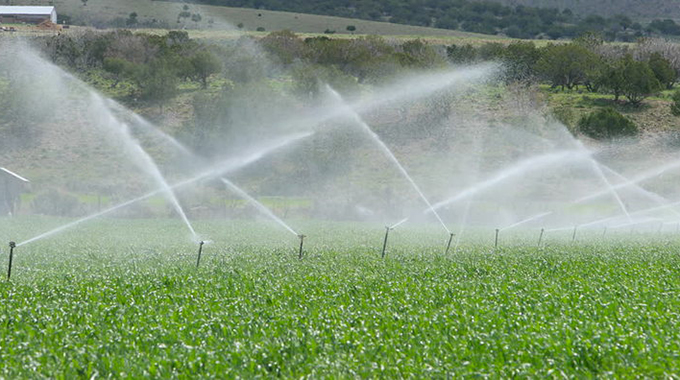Land reform tidying up: Is it so wrong?

Nick Mangwana
In Zimbabwe, we have an entrenched opposition whose positions are not consistent. What is consistent is that they will oppose each other.
The problem with this state of affairs is that principle is thrown to the wind while some pursue the politics of expediency. This leads to politics of emotion rather than politics of reason.
Once a nation attains this position, then those polarised sides can only achieve both selective blindness and wilful amnesia.
There is no moral compass, position and direction is determined by parochial convenience.
Recently, public discourse has again been around the tidying up of Zimbabwe’s land policy and the regularisation of legacy issues around the implementation of the Fast-rack Land Reform Programme. In this piece, I will try to separate fact from fiction.
The New Dispensation made it clear from the word go that property rights will be respected in Zimbabwe in order to attract investment. It means that as a nation, Zimbabwe will respect conventions it is a signatory to as well as agreements it signed with other parties.
During the fast track land reform, because of its revolutionary nature, there was no regard given to these agreements which matter under both domestic and international law.
There was also no regard to land owned by black farmers who in principle could not be characterised as beneficiaries of the plunder of colonialism.
President Mnangagwa was clear from the very first inauguration on 24 November 2017, that he was going to clean up the land reform issues and put them to bed. In this he sought to respect our own Constitution as well as mainstream Zimbabwe as a country that respects agreements it signs.
Anything short of this would still leave potential investors and funders jittery as it would not guarantee the security of investments. So this is what he did and why;
He said that there will be restoration of the land that had been taken from black Zimbabweans. Is this a wrong thing to do? We are talking of people like Mr James Makamba and the likes of Mr Tawanda Nyambirai.
Was it right for people to covet their farms and take away the fruit of their hard labour? If we agree that this was morally incorrect, then let us applaud the President who is gutsy enough to clean this up.
This is one category of farmers few will disagree that they should get their land back but if so much water has gone under the bridge, then they should be given alternative land elsewhere.
Those with long memories can remember how Mr Edwin Masimba Moyo lost Kondozi. If this could be tidied up, would that be so wrong? Thankfully he is currently running Nhimbe Fresh in Marondera and working wonders there. But he is probably in the group of blacks who should not have lost their land and whose situation the current policy is meant to redress.
The next category is that of Bilateral Investment Protection and Promotion Agreement (BIPPA) and Bilateral Investment Treaties (BITs). The respecting of BIPPAs and BITs is a clear message that a country is committed to attracting Foreign Direct Investment (FDI) Once a BIPPA has been ratified, it has to be honoured.
So it really goes without saying that for re-engagement to work, the country has to reach amicable settlements with the parties to BIPPAs where violation took place during the Third Chimurenga. BIPPAs ensure reciprocal encouragement, promotion and protection of investments. Those who are calling for the rule of law in other areas, should also support the rule of law in this. You can’t cherry-pick. This is restoration of the rule of law.
So once again, is this wrong?
These are not moral and contractual arguments, more importantly, they are Constitutional arguments because that’s exactly what s295(1-2) as read with s72(3) of the constitution of Zimbabwe says should happen.
The Global Compensation Agreement signed on 29 July 2020 speaks to this. It also says should there be a case for financial compensation, it should be considered separately on a case by case basis otherwise land should be restored or replaced.
The restoration or replacement of land is legislated through (SI 62 of 2020 The Land Commission (Gazetted Land) (Disposal in Lieu of Compensation) Regulations (SI 62 of 2020). Former farm owners in this category can apply in writing to the Minister of Lands, Agriculture, Water and Rural Settlements for restoration of title to the pieces of agricultural land that was compulsorily acquired from them for resettlement.
The Government will grant their applications where the circumstances presently obtaining on the ground permit the restoration of their land to them. In this regard in order to allow former farm owners in this category to regain possession of the pieces of land that were acquired from them, Government will, if it’s not disruptive to do so, revoke the offer letters of the resettled farmers currently occupying those pieces of land and offer them alternative land somewhere. Is this wrong? If one argues that it is wrong let’s hear where it’s so wrong.
In any case, how many farms are actually involved in this? Just for the record, it is less than 37 farms. This is not a new thing. A good amount of compensation has already been paid for most of these farms that the actual number which may be restored will not surpass 22.
This is a very small number which is not worth having this country classified as a Property Right Violator for. When we guarantee the security of investment to new investors, our attitude to past investment and agreements speaks to our record and reputation. What’s being done here is the right thing to do.
We signed to protect these investments. President Mnangagwa is a lawyer who is bravely showing that he understands the meaning of putting a signature to paper in concordance with another.
The fact that we have been paying this money to those foreign farmers for years did not come with the New Dispensation. It’s something that was decided in the First Republic.
The International Centre for Settlement of Investment Disputes, which is part of the World Bank Group, ordered Zimbabwe to pay US$196m as compensation to the Von Pezolds, a Swiss/German family who had lost their farm. Zimbabwe even tried to appeal and lost the case.
These cases have adversely affected our international trade. The reader may recall our confiscated proceeds from an Antwerp diamond sale by 40 Dutch farmers. Clearly, this is an issue that needs to be decisively dealt with and not just to be wished away.
Going forward, any Zimbabwean regardless, or race, religion, gender or creed can apply for land. This application is considered on its own merit and not on by a narrow or racial line. This means that white Zimbabweans can also apply for land just like what Hon Minister Coventry did. She did not get that land because she is a Cabinet Minister. She got it because she is a Zimbabwean.
If a former commercial farmer is already on a piece of land and they are productive on it, they are advised to apply to regularise their status on that land. This land remains State land with no extra title beyond a lease.
Some of those criticising this policy are in President Mnangagwa’s own party. This is shocking because they all went to campaign and won elections with a manifesto that was very clear that this is what the Party was going to do if voted in.
Now that the party of Government is doing what it was elected on, what has gone wrong? Is there a suggestion that some were brandishing the manifesto as a political prop and not public declaration of policy and aims?
Every action President Mnangagwa has taken since being sworn in two years ago is actually found in his party’s Election Manifesto. This is what won him and his Party the elections.
To members of the opposition, some of these constitutional clauses came from your side during the constitutional making process. Why are you running away from the constitution you all harp that it should be implemented?
To members of Zanu PF, it is all great to come and attend the launch of your Party Manifesto with pomp and fanfare but please take a moment to read it. It will help with enjoining you to the implementation.
I am out.
Nick Mangwana is the Permanent Secretary in the Ministry of Information, Publicity and Broadcasting Services.









Comments